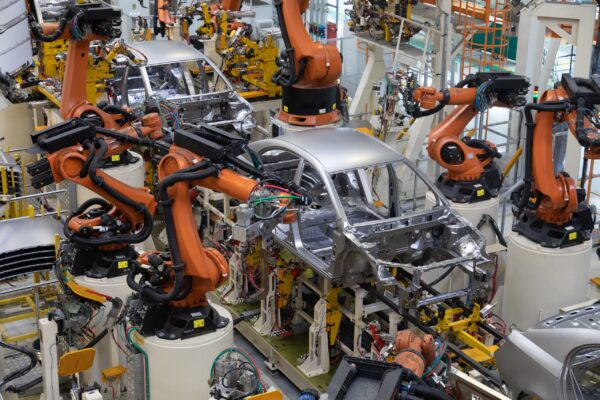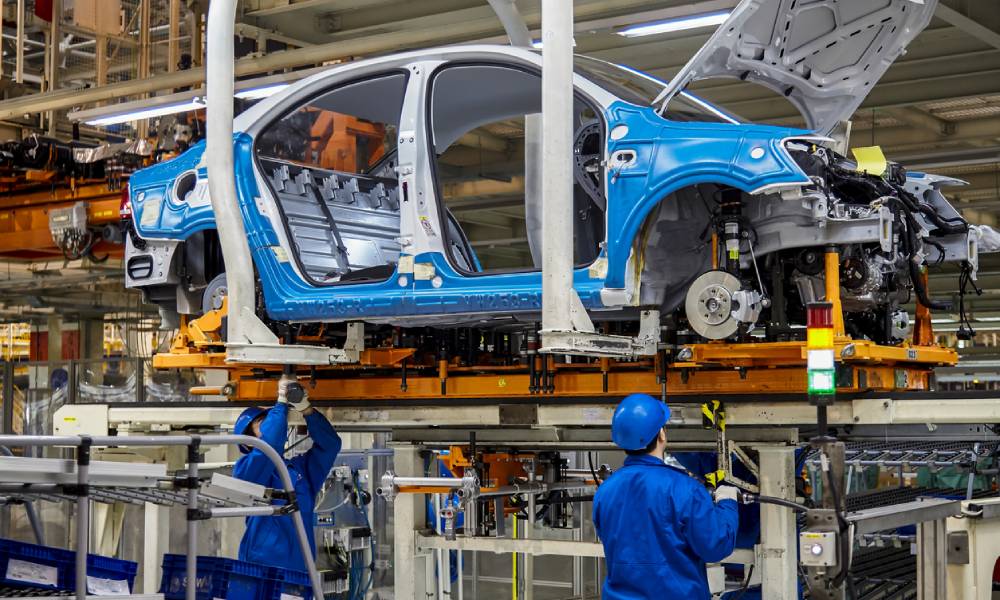The automotive industry is undergoing a transformative shift toward sustainable manufacturing, driven by environmental concerns, regulatory demands, and consumer preferences for greener products. This shift encompasses innovative technologies, eco-friendly materials, and significant operational changes aimed at reducing the environmental impact of vehicle production. However, achieving sustainability in this complex industry is not without its challenges.
What is Sustainable Manufacturing in the Auto Industry?
Sustainable manufacturing involves adopting processes and materials that minimize environmental harm while promoting economic and social benefits. In the auto industry, this includes reducing carbon emissions, conserving energy, recycling materials, and utilizing renewable resources. The primary goals include a reduction in the carbon footprint through energy-efficient processes and renewable energy sources, waste management by adopting a circular economy approach, and energy efficiency by implementing advanced technologies to lower energy consumption during production.
Innovations Driving Sustainability
The push toward sustainability has led to numerous groundbreaking innovations in the automotive sector. Automakers are increasingly using recycled and bio-based materials for vehicle interiors, exteriors, and components. Recycled plastics are widely used in dashboards and seating, while bio-composite materials derived from agricultural waste like coconut fibers or hemp are gaining popularity. Additionally, renewable energy adoption is reshaping manufacturing. Companies like Tesla are leading the way by powering factories with solar and wind energy, significantly reducing reliance on fossil fuels.
3D printing technology has also revolutionized manufacturing by enabling precise production with minimal waste, making it particularly useful for prototyping and creating lightweight components. Moreover, green supply chain management ensures that sustainability extends beyond in-house production. Automakers collaborate with suppliers to ethically source raw materials and implement environmentally friendly processes across the supply chain.

Challenges in Achieving Sustainable Manufacturing
Despite the progress, the road to sustainable manufacturing in the auto industry is fraught with challenges. High initial costs are a significant barrier as transitioning to sustainable practices often requires substantial upfront investments in new technologies, training, and infrastructure. Additionally, supply chain complexity presents a major challenge. Ensuring sustainability across global supply chains, especially in sourcing rare materials like lithium for EV batteries, is a daunting task.
Balancing performance and sustainability is another critical issue. Consumers expect vehicles that are both high-performing and eco-friendly. Meeting these demands without compromising quality or safety is a constant struggle for manufacturers. Furthermore, regulatory and compliance issues add to the complexity. Different countries have varying environmental regulations, making it challenging for global manufacturers to align their production strategies seamlessly.
The Role of Electric Vehicles in Sustainability
Electric vehicles (EVs) are at the forefront of sustainable manufacturing. Their production involves significant advancements in battery technology and energy-efficient assembly processes. EVs reduce tailpipe emissions and promote a shift to renewable energy in manufacturing. However, they also present challenges, such as the environmental impact of mining rare earth materials for batteries and the energy-intensive recycling processes required at the end of their lifecycle. Addressing these issues is crucial to ensure that EVs remain a sustainable alternative to traditional vehicles.
Future Outlook
The future of sustainable manufacturing in the auto industry lies in embracing innovative technologies, fostering global collaboration, and adhering to stricter environmental regulations. Autonomous and electric vehicles will play a pivotal role in reducing emissions. Advances in AI and IoT will enable smart factories that optimize energy use and minimize waste. Additionally, the transition to circular manufacturing systems, where materials are continuously reused, will further enhance sustainability efforts.
Sustainable manufacturing is no longer optional; it is a necessity to ensure the longevity of the automotive industry and the planet. By addressing current challenges and investing in forward-thinking strategies, automakers can pave the way for a greener, more sustainable future.




